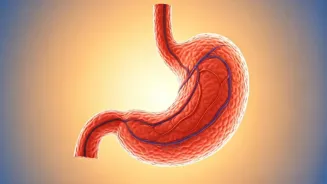Dietary Distress Signals
Rujuta Diwekar, a well-known nutritionist, has shed light on specific indicators that could suggest your current diet plan isn't aligning with your body's
needs. These signals, according to her, are crucial in understanding whether your dietary choices are beneficial or, conversely, detrimental to your health. Paying attention to these signs allows individuals to identify potential issues and make necessary adjustments to their eating habits. Diwekar's emphasis on these indicators offers a practical perspective on listening to your body and making informed decisions about what you eat. Recognizing and responding to these cues can potentially lead to enhanced well-being and a more balanced approach to nutrition. It is important to understand that these signals are meant to guide you in evaluating your diet, not to cause alarm, but to help you towards your fitness journey.
Unexplained Fatigue
One of the primary indicators Diwekar mentions is persistent fatigue that isn't alleviated by adequate rest. If you find yourself consistently tired, even after getting sufficient sleep, your diet could be the culprit. This fatigue might result from a deficiency in essential nutrients or an imbalance in your body's energy levels. It is crucial to analyze your food intake if you consistently experience this. Make sure your diet incorporates a variety of foods that will keep you energized throughout the day. If your diet lacks vital nutrients, your body might struggle to produce enough energy, leading to persistent tiredness. The body's response to the food it consumes is a key factor in maintaining energy levels. Addressing this could involve revisiting your meal plans and ensuring you're eating enough nutrient-dense foods such as whole grains, fruits, and vegetables that support overall health and combat fatigue.
Digestive Discomfort
Another significant red flag, as highlighted by Diwekar, is regular digestive issues such as bloating, constipation, or indigestion. These problems could indicate that your diet isn't supporting your digestive system. An improperly structured diet might lack the necessary fiber, probiotics, or other nutrients essential for efficient digestion. Regular disruptions in your digestive processes can interfere with nutrient absorption and cause discomfort. For individuals experiencing these problems, it's advisable to carefully evaluate their diet and look for potential triggers. For instance, eating too many processed foods or consuming excessive amounts of sugar could cause digestive distress. Addressing these issues may involve adjusting your diet to include more whole, unprocessed foods rich in fiber. Including probiotic-rich foods or supplements could help improve gut health and overall well-being.
Unusual Food Cravings
The third key signal Diwekar identifies is the development of unusual or excessive food cravings. Intense desires for specific foods, especially those high in sugar, salt, or unhealthy fats, might indicate nutritional imbalances or that your body lacks essential nutrients. These cravings may signal that your diet isn't giving your body what it needs. They're often linked to blood sugar fluctuations, or to the body's attempt to compensate for nutrient deficiencies. If you're frequently battling strong cravings, it's time to reassess your diet to ensure you're eating a balanced mix of nutrients. Focusing on incorporating nutrient-dense foods can help to satisfy your body's needs, which eventually reduces these unhealthy cravings. This shift towards whole foods can help you feel more satiated and improve overall well-being.













